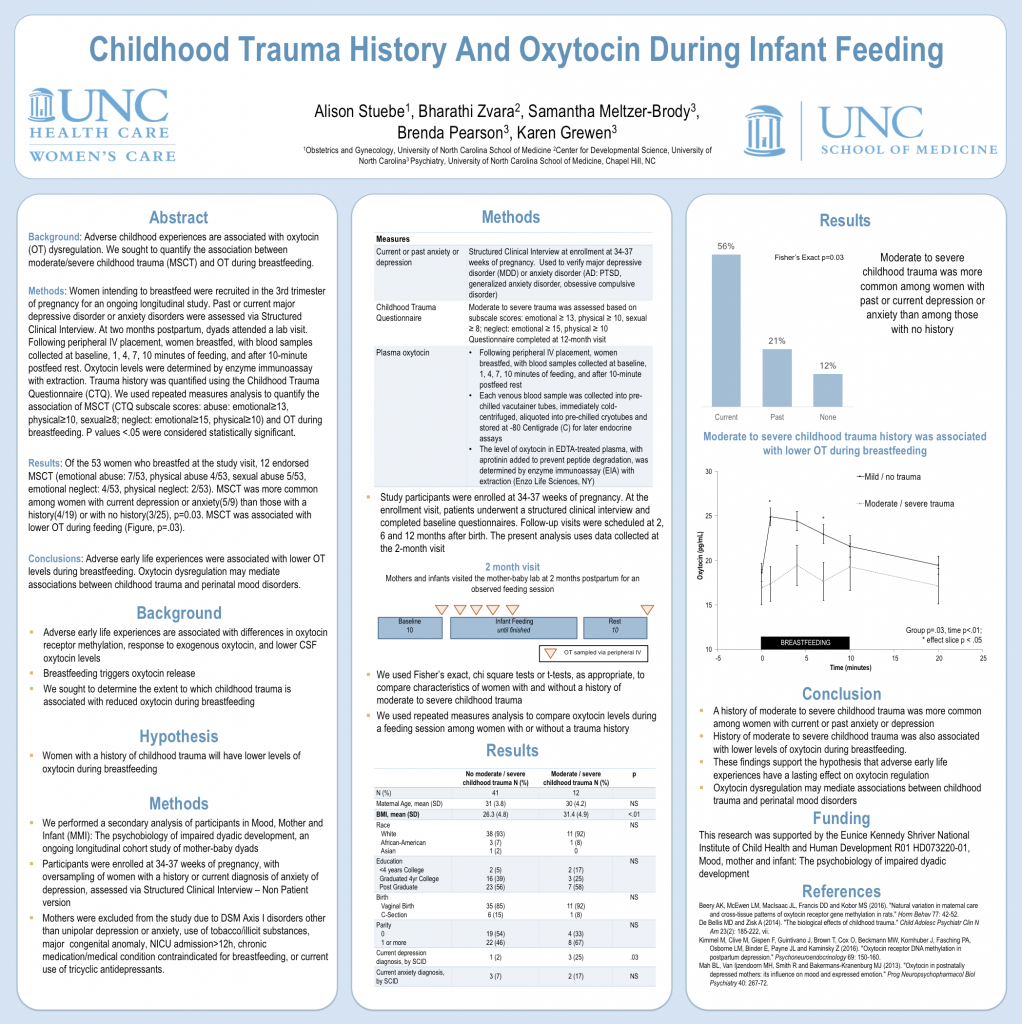MMI results were presented at the 71st Annual Meeting of the Society for Biological Psychiatry meeting in Atlanta, Georgia, May 14, 2016.
1091: Childhood Trauma History And Oxytocin During Infant Feeding
Alison Stuebe1, Bharathi Zvara2, Samantha Meltzer-Brody3, Brenda Pearson3, Karen Grewen3
1Obstetrics and Gynecology, University of North Carolina School of Medicine, Chapel Hill, NC, 2Center for Developmental Science, University of North Carolina, Chapel Hill, NC, 3Psychiatry, University of North Carolina School of Medicine, Chapel Hill, NC
Background: Adverse childhood experiences are associated with oxytocin (OT) dysregulation. We sought to quantify the association between moderate/severe childhood trauma (MSCT) and OT during breastfeeding.
Methods: Women intending to breastfeed were recruited in the 3rd trimester of pregnancy for an ongoing longitudinal study. Past or current major depressive disorder or anxiety disorders were assessed via Structured Clinical Interview. At two months postpartum, dyads attended a lab visit. Following peripheral IV placement, women breastfed, with blood samples collected at baseline, 1, 4, 7, 10 minutes of feeding, and after 10-minute postfeed rest. Oxytocin levels were determined by enzyme immunoassay with extraction. Trauma history was quantified using the Childhood Trauma Questionnaire (CTQ). We used repeated measures analysis to quantify the association of MSCT (CTQ subscale scores: abuse: emotional≥13, physical≥10, sexual≥8; neglect: emotional≥15, physical≥10) and OT during breastfeeding. P values <.05 were considered statistically significant.
Results: Of the 53 women who breastfed at the study visit, 12 endorsed MSCT (emotional abuse: 7/53, physical abuse 4/53, sexual abuse 5/53, emotional neglect: 4/53, physical neglect: 2/53). MSCT was more common among women with current depression or anxiety(5/9) than those with a history(4/19) or with no history(3/25), p=0.03. MSCT was associated with lower OT during feeding (Figure, p=.03).
Conclusions: Adverse early life experiences were associated with lower OT levels during breastfeeding. Oxytocin dysregulation may mediate associations between childhood trauma and perinatal mood disorders.

